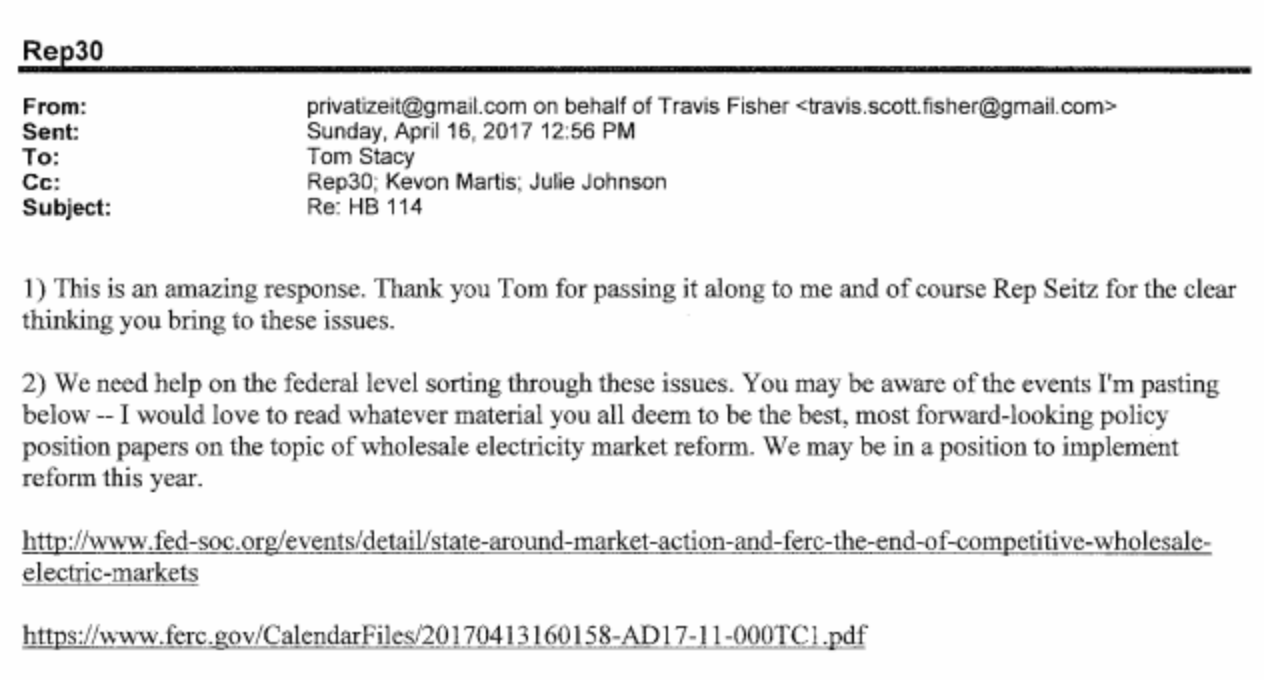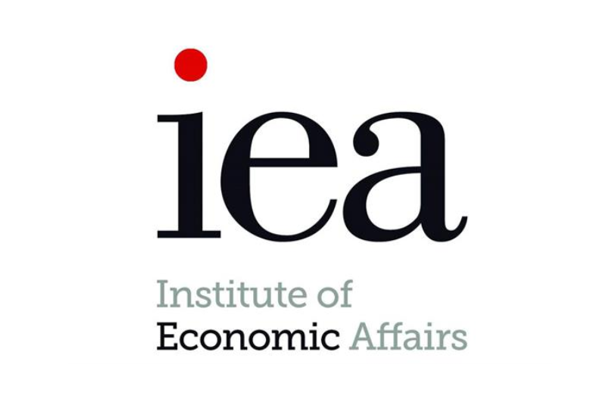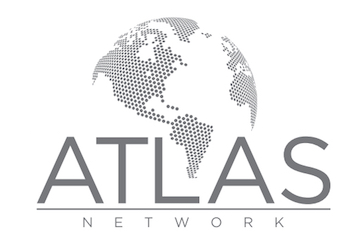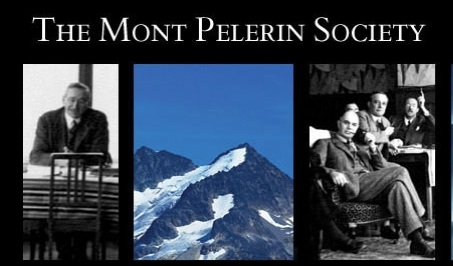Travis Fisher
Credentials
- Master’s, Economics, North Carolina State University (2006).1 “Travis Fisher,” LinkedIn. Accessed April 20, 2018. Archived .pdf on file at DeSmog.
- BS, Economics, North Carolina State University (2005).2 “Travis Fisher,” LinkedIn. Accessed April 20, 2018. Archived .pdf on file at DeSmog.
Background
Travis Fisher is an economist and former adviser to Federal Energy Regulatory Commission Chairman Kevin McIntyre. He was formerly an employee of the pro-fossil-fuel Institute for Energy Research (IER). Before working at IER, Fisher was an economist for the Federal Energy Regulatory Commission (FERC). Fisher joined the Electricity Consumers Resource Council (ELCON) as President and CEO in April 2020. ELCON describes itself as “ the national association representing large industrial users of electricity” created to “advocate policy more effectively by forming a united front.”3 “Travis Fisher,” LinkedIn. Accessed April 20, 2018. Archived .pdf on file at DeSmog. 4 “Travis Fisher,” Institute for Energy Research. Archived April 21, 2018. Archive.is URL: https://archive.li/t32hn 5 (Press Release). “ELCON Hires President and CEO” (PDF), ELCON, April 9, 2020. Archived .pdf on file at DeSmog. 6 “About Us,” ELCON. Archived April 24, 2020. Archive URL: https://archive.vn/e2Cyk
Fisher has said he became a fiscal conservative after reading the works of Frederic Bastiat and taking a free market economics course through North Carolina State University. He interned at the conservative John Locke Foundation before joining the Federal Energy Regulatory Commission as an economist. Following his work for the government, Fisher moved on to work for the Institute for Energy Research (IER) as a policy associate.7 “Travis Fisher Seeks to ‘Be Rather Than to Seem’,” John William Pope Foundation. Archived April 21, 2018. Archive.is URL: https://archive.li/2a8zU
“It seems conventional wisdom that government should get more involved in energy,” he said. “It’s counter intuitive to argue that government should get out of energy. But I like the challenge,” Fisher said in an interview with the John William Pope Foundation.8 “Travis Fisher Seeks to ‘Be Rather Than to Seem’,” John William Pope Foundation. Archived April 21, 2018. Archive.is URL: https://archive.li/2a8zU
After working for the pro-fossil-fuel Institute for Energy Research (IER), Travis Fisher joined President Trump’s transition team at the Department of Energy. E&E News reported that Fisher’s move was facilitated by IER’s President Tom Pyle, who led the DOE transition.9 Hannah Northey. “Sources: Official who led DOE grid study to join commission,” E&E News , March 30, 2018. Archived April 20, 2018. Archive.is URL: https://archive.li/MJOhK
Fisher oversaw a DOE staff report requested by Rick Perry that found natural gas was the largest factor driving the closure of coal plants this decade. Following that report, Perry sent a request to the FERC to boost fossil fuel and nuclear plants, and his request was unanimously rejected.10 Hannah Northey. “Sources: Official who led DOE grid study to join commission,” E&E News , March 30, 2018. Archived April 20, 2018. Archive.is URL: https://archive.li/MJOhK
Stance on Climate Change
2015
Fisher has opposed clean energy policies that would reduce greenhouse gas emissions. In a 2015 IER report, Fisher wrote:11 “Assessing Emerging Policy Threats to the U.S. Power Grid” (PDF), Institute for Energy Research, February 2015. Archived .pdf on file at DeSmog.
“The single greatest emerging threat to reliable electricity in the U.S. does not come from natural disturbances or from human attacks. Rather, the host of bad policies now coming from the federal government—and, unfortunately, from many state governments —is creating far greater and more predictable problems with grid reliability.”
Key Quotes
Undated
Travis Fisher said that his thinking has been influenced by fossil fuel proponent Alex Epstein. Fisher’s testimonial appears on the Center for Industrial Progress’s website:12 “Testimonials for CIP founder Alex Epstein,” Center for Industrial Progress. Archived April 20, 2018. Archive.is URL: https://archive.li/5mS8K
“Alex Epstein has helped me re-frame my thinking, as Julian Simon set out to do, to take into account all facets of the human environment when dealing with environmental issues. He illustrates very effectively that the ‘natural’ environment is not conducive to human progress, and thus we must set out to improve it if we wish to improve ourselves.”
October 2015
Fisher was quoted by The Heartland Institute, discussing his recent study at IER claiming that wind power was four times as expensive as coal:13 “STUDY: WIND ELECTRICITY SEVERAL TIMES AS EXPENSIVE AS CONVENTIONAL SOURCES,” The Heartland Institute, October 7, 2015. Archived April 21, 2018. Archive.is URL: https://archive.li/G9E5j
“The notion that wind and solar power are becoming cheaper than sources like coal and nuclear is patently false,” Fisher claimed.
“This narrative tends to compare only brand-new power plants—highly subsidized wind and solar installments—to coal plants paralyzed by costly and unprecedented regulations,” said Fisher. “The implication is there is no longer a cost premium in replacing the output of today’s existing coal plants with power from wind and solar facilities, never mind the obvious reliability problems in attempting to do that.”
March 24, 2015
“Going 100 percent renewable is an outrageously expensive and impractical thing to do—it’s irresponsible to make it sound easy or even desirable,” Fisher wrote in an “analysis” piece for the Institute for Energy Research.14 “Busting the ‘100 Percent Renewable’ Myth,” Institute for Energy Research, March 24, 2015. Archive.is URL: https://archive.li/UPyHh
May 15, 2014
Fisher wrote an IER article critical of the American Wind Energy Association and the wind production tax credit (PTC):15 “Top Five Questins for AWEA’s Tom Kiernan,” Institute for Energy Research, May 15, 2014. Archived April 21, 2018. Archive.is URL: https://archive.li/7dJRv
“AWEA fails to address environmental impacts other than air pollution, which include bird and bat deaths, increased land use, and problems associated with the rare earths used in wind turbines,” Fisher claimed.
“These are real environmental concerns that AWEA routinely leaves out of the discussion. Consequently, policymakers should not rely strictly on AWEA’s statements if they want to make informed policy decisions.”
[…] “AWEA is hopelessly divorced from reality when it pretends that wind power replaces natural gas and coal rather than nuclear power.”
February 12, 2014
“Despite years of subsidies for wind, solar, and other renewables, these technologies are still not competitive with coal, natural gas, and other affordable, reliable sources of electricity generation,” Fisher said in his testimony before the Ohio Senate Public Utilities Committee.16 “IER Expert Testifies on Ohio’s Alternative Energy Standard,” Institute for Energy Research, February 12, 2014. Archived April 20, 2018. Archive.is URL: https://archive.li/HPBAj
Key Deeds
April 16, 2020
Fisher became president and CEO of the Electricity Consumers Resource Council (ELCON).17 (Press Release). “ELCON Hires President and CEO” (PDF), ELCON, April 9, 2020. Archived .pdf on file at DeSmog. 18 “About Us,” ELCON. Archived April 24, 2020. Archive URL: https://archive.vn/e2Cyk
ELCON promotes itself as “ the only national association representing industrial electricity users interacting with the Federal Energy Regulatory Commission (FERC) on a regular basis.”19 “About Us,” ELCON. Archived April 24, 2020. Archive URL: https://archive.vn/e2Cyk
According to its website, ELCON “is also active in the legislative process, working with Members of Congress and their staffs promoting policies consistent with its objectives.”20 “About Us,” ELCON. Archived April 24, 2020. Archive URL: https://archive.vn/e2Cyk
February/March 2018
Axios reported Travis Fisher was leaving the DOE, according to an administration official. Fisher had overseen a study that found that the market for cheap natural gas and renewable energy were the reason some nuclear and coal plants were struggling. The study contrasted with the rule issued by Perry pushing to boost coal and nuclear plants. According to one source, Fisher’s departure from the DOE was influenced at least in part due to his difference in policy positions from Perry.21 Amy Harder. “Scoop: Top Energy Department adviser to depart,” Axios, February 22, 2018.
As of March, E&E News reported that Fisher had left his post at the DOE. He is expected to move to a position at the FERC to work as an adviser for Kevin McIntyre’s office, although his role could change. He would report to Chief of Staff Anthony Pugliese, who was appointed the prior summer.22 Hannah Northey. “Sources: Official who led DOE grid study to join commission,” E&E News , March 30, 2018. Archived April 20, 2018. Archive.is URL: https://archive.li/MJOhK
E&E News reported that, according to his former colleagues, Fisher’s move was partly the result of the agency’s request to financially support struggling coal and nuclear plants. Fisher had led the study, tasked by DOE Energy Secretary Rick Perry, to write the staff report that found natural gas to be the leading driver of coal plant closure this decade.23 Hannah Northey. “Sources: Official who led DOE grid study to join commission,” E&E News , March 30, 2018. Archived April 20, 2018. Archive.is URL: https://archive.li/MJOhK
February 2018
Emails obtained by the Energy and Policy Institute (EPI) via public records requests revealed communications to and from Travis Fisher to a number of anti-wind and anti-renewable energy activists. The emails were obtained as part of a series of public records requests by EPI.24 Dave Anderson. “A Trump adviser’s emails shed light on a shadowy anti-clean energy network,” Energy and Policy Institute. Archived April 20, 2018.
In an April 16, 2017 email, Fisher asked for “help” on the issue of “wholesale electricity market reform.”

Tom Stacey has ties to a range of anti-wind groups, telling MasterResource he was involved with NRECA (National Rural Electric Cooperatives Association), ACRE (Action Committee for Rural Electrification, The Buckeye (Policy) Institute, the Institute for Energy Research, and with IICCUSA.org (Interstate Informed Citizens Coalition), among others.25 Sherri Lange. “Tom Stacy: Heroic Ohioan for Affordable Electricity,” MasterResource, April 14, 2016. Archived April 20, 2018. Archive.is URL: https://archive.li/XVoYA
Fisher’s email came two days after Secretary of Energy Rick Perry ordered a controversial grid study. Fisher’s appointment to lead the study was initially criticized, after it came out that Fisher had authored a 2015 IER report that described clean energy policies as “the single greatest emerging threat” to the power grid.26 Dave Anderson. “A Trump adviser’s emails shed light on a shadowy anti-clean energy network,” Energy and Policy Institute. Archived April 20, 2018.
August 2017
Fisher organized a staff report on electricity markets and reliability, at the request of U.S. Secretary of Energy Rick Perry. Perry had ordered a grid review in April, launching with a memo that claimed the electrical supply was being undermined by “market-distorting effects of federal subsidies that boost one form of energy at the expense of others” including environmental regulations.27 “STUDY EXAMINES ELECTRICITY MARKETS AND RELIABILITY,” United States Department of Energy, April 14, 2017.
The American Wind Energy Association and the Advanced Energy Economy, which represents a range of corporations, released their own report countering Perry’s concerns.28 “Coal’s Decline Not Hurting Power Grid Reliability, Study Says,” InsideClimate News, June 21, 2017. Archived April 21, 2018. Archive.is URL: https://archive.li/BUD2o
Environmental groups criticized the study’s recommendations. John Moore, director of The Natural Resources Defense Council (NRDC), called it a “a schizophrenic attempt to support outdated, uncompetitive, and highly polluting power plants.”
“The recommendations ignore renewable energy’s contributions to a reliable electricity system,” he said. “They also include misguided proposals to gut environmental rules for coal and nuclear plants, and to pay fossil resources for reliability services that DOE hasn’t demonstrated are necessary. DOE and Secretary Perry should be focusing instead on accelerating the growth of clean energy rather than creating barriers.”29 Peter Behr and Hannah Northey. “Perry’s policy review pivots on grid resiliency,” E&E News, August 24, 2017. Archived April 21, 2018. Archive.is URL: https://archive.li/dLbvI
The DOE Staff Report itself concluded contrary to Perry’s concerns, finding that the largest reason for coal plant closurs has “been the advantaged economics of natural gas-fired generation” due to cheap gas from fracking, and that the grid was operating reliably.30 Peter Behr and Hannah Northey. “Perry’s policy review pivots on grid resiliency,” E&E News, August 24, 2017. Archived April 21, 2018. Archive.is URL: https://archive.li/dLbvI
Fisher later spoke about his involvement in the report on The Interchange:31 “Travis Fisher on DOE’s Epic Grid Reliability Report,” Art19. Archived .mp3 on file at DeSmog.
February 2017
Fisher joins the DOE as a Special Advisor, a hire that was facilitated by IER President Tom Pyle.32 Hannah Northey. “Sources: Official who led DOE grid study to join commission,” E&E News , March 30, 2018. Archived April 20, 2018. Archive.is URL: https://archive.li/MJOhK
April 2016
Fisher contributed to an IER report criticizing rooftop solar power by listing a range of “myths” about residential solar generation. The report was republished at the Heartland Institute.33 “Residential Solar: Myth vs. Fact,” Institute for Energy Research. Retrieved from heartland.org. 34 “RESIDENTIAL SOLAR: MYTH VS. FACT,” Heartland Institute, April 27, 2016. Archived April 20, 2018. Archive.is URL: https://archive.li/NCBjo
February 2016
Fisher appeared on an episode of the Center for Industrial Progress‘s “Power Hour,” hosted by fossil fuel proponent Alex Epstein, to discuss “the 100% Renewable Scam.”35 “Power Hour: Travis Fisher on the 100% Renewable Scam,” Center for Industrial Progress. Archived April 20, 2018. Archived .mp3 on file at DeSmog.
Epstein introduced Fisher as a “Friend of Energy.” Fisher had written an article, “Busting the ‘100 Percent Renewable’ Myth” at the Institute for Energy Research.36 “Busting the ‘100 Percent Renewable’ Myth,” Institute for Energy Research, March 24, 2015. Archive.is URL: https://archive.li/UPyHh
February 24, 2015
Fisher wrote an IER report that described state and federal clean energy policies as “the single greatest emerging threat” to the power grid. Fisher wrote in the report:37 “Assessing Emerging Policy Threats to the U.S. Power Grid” (PDF), Institute for Energy Research, February 2015. Archived .pdf on file at DeSmog.
“The single greatest threat to reliable electricity in the U.S. does not come from natural disturbances or human attacks. Rather, the host of bad policies now coming from the federal government – and unfortunately from many state governments – is creating far greater and more predictable problems with grid reliability.”38 “Assessing Emerging Policy Threats to the U.S. Power Grid” (PDF), Institute for Energy Research, February 2015. Archived .pdf on file at DeSmog.
Several years after Fisher’s study, the Energy and Policy Institute reported that Fisher’s 2015 report was “strikingly similar” to a memo from Secretary Rick Perry, who ordered a DOE study on grid reliability. “Perry’s memorandum included a specific order to examine, ‘The extent to which continued regulatory burdens, as well as mandates and tax and subsidy policies, are responsible for forcing the premature retirement of baseload power plants’” the Energy and Policy Institute reported.39 “Travis Fisher: Author of Rick Perry’s grid study called clean energy policies a greater threat than terrorism,” Energy and Policy Institute. Archived April 20, 2018. Archive.is URL: https://archive.li/F2f3V
December 8, 2014
Fisher list listed as author on an IER comment on the EPA’s proposed power plant rule to limit emissions from existing powerplant. According to the IER summary, the “EPA’s proposed rule is a threat to the power grid, raises the cost of energy, and offers no tangible benefits in terms of global temperatures.”40 “IER Comment on EPA’s Proposed Power Plant Rule,” Institute for Energy Research, December 8, 2014. Archived April 20, 2018. Archive.is URL: https://archive.li/7nY8e
February 12, 2014
Fisher testified before the Ohio Senate Public Utilities Committee. According to IER, his testimony focused on “ the misperceptions of the Renewable Portfolio Standards (RPSs) as they relate to the state of Ohio.”41 “IER Expert Testifies on Ohio’s Alternative Energy Standard,” Institute for Energy Research, February 12, 2014. Archived April 20, 2018. Archive.is URL: https://archive.li/HPBAj
In his testimony, Fisher listed the following as “misconceptions” regarding RPSs:42 “IER Expert Testifies on Ohio’s Alternative Energy Standard,” Institute for Energy Research, February 12, 2014. Archived April 20, 2018. Archive.is URL: https://archive.li/HPBAj
- “RPSs will create jobs
- “RPSs are needed because America is running out of coal, oil, and natural gas
- “RPSs are needed because renewable energy is an infant industry in need of help
- “RPSs will reduce the cost of electricity
- “RPSs are an effective way to reduce carbon dioxide emissions”
“None of these are true, but what is true is that RPSs raise the cost of electricity, and the states that have RPSs tend to have the most expensive electricity,” Fisher claimed.43 “IER Expert Testifies on Ohio’s Alternative Energy Standard,” Institute for Energy Research, February 12, 2014. Archived April 20, 2018. Archive.is URL: https://archive.li/HPBAj
December 3, 2013
Robert L. Bradley Jr. reported that Travis Fisher was a panelist at a “Wind Policy Luncheon” co-hosted by the Institute for Energy Research and the American Energy Alliance (AEA).44 Robert Bradley Jr. “Speaking Truth to Wind Power (Recent IER Panel on the Hill),” MasterResource, January 7, 2014. Archived April 20, 2018. Archive.is URL:https://archive.li/7xSQ6 45 “Wind Policy Luncheon,” Cloture Club, December 2, 2013. Archived November 21, 2014. Archive.is URL: https://archive.li/zgxhQ
“In a study to be released next week by the Institute for Energy Research, the parent organization of the American Energy Alliance, Big Wind’s dirty little secrets are laid bare,” the event description read. “The wind production tax credit is one of the largest transfers of wealth in the energy sector, sucking billions of dollars from states that derive no benefit from wind energy to underwrite the mandates in other states.”46 “Wind Policy Luncheon,” Cloture Club, December 2, 2013. Archived November 21, 2014. Archive.is URL: https://archive.li/zgxhQ
Affiliations
- Electricity Consumers Resource Council (ELCON) — President and CEO (beginning April 16, 2020).47 (Press Release). “ELCON Hires President and CEO” (PDF), ELCON, April 9, 2020. Archived .pdf on file at DeSmog.
- U.S. Department of Energy (DOE) — Senior Advisor (Jan 2018 – Mar 2018).48 “Travis Fisher,” LinkedIn. Accessed April 20, 2018. Archived .pdf on file at DeSmog.
- Institute for Energy Research (IER) — Economist (2013 – 2017).49 “Travis Fisher,” LinkedIn. Accessed April 20, 2018. Archived .pdf on file at DeSmog.
- Federal Energy Regulation Commission — Economist (Jun 2006 – May 2014).50 “Travis Fisher,” LinkedIn. Accessed April 20, 2018. Archived .pdf on file at DeSmog.
- John Locke Foundation (JLF) — Research Intern (Jan 2005 – May 2006).51 “Travis Fisher,” LinkedIn. Accessed April 20, 2018. Archived .pdf on file at DeSmog.
Social Media
- @ts_fisher on Twitter.
- Travis Fisher on LinkedIn.
Publications
Below are some of Fisher’s posts and reports at the Institute for Energy Research:
- “House Energy Committee Dives into the Federal Power Act,” Institute for Energy Research, Sep 12, 2016.
- “News Flash: Wind Power is Not Cheaper than Coal,” Institute for Energy Research, May 23, 2016.
- “Busting the “100 Percent Renewable” Myth,” Institute for Energy Research, Mar 24, 2015.
- “IER Comment on EPA’s Proposed Power Plant Rule,” Institute for Energy Research, Dec 08, 2014.
- “Hearing with FERC Reveals Uncertainties in EPA’s Power Plant Rule,”Institute for Energy Research, Jul 30, 2014.
- “FERC’s Overreach on Demand Response,” Institute for Energy Research, Jun 23, 2014.
- “Follow-up Questions for FERC’s Norman Bay,” Institute for Energy Research, May 21, 2014.
- “Top Five Questions for AWEA’s Tom Kiernan,” Institute for Energy Research, May 15, 2014.
- “Did Wind Really Save Texas from Rolling Outages?,” Institute for Energy Research, Jan 09, 2014.
Other Resources
Resources
- 1“Travis Fisher,” LinkedIn. Accessed April 20, 2018. Archived .pdf on file at DeSmog.
- 2“Travis Fisher,” LinkedIn. Accessed April 20, 2018. Archived .pdf on file at DeSmog.
- 3“Travis Fisher,” LinkedIn. Accessed April 20, 2018. Archived .pdf on file at DeSmog.
- 4“Travis Fisher,” Institute for Energy Research. Archived April 21, 2018. Archive.is URL: https://archive.li/t32hn
- 5(Press Release). “ELCON Hires President and CEO” (PDF), ELCON, April 9, 2020. Archived .pdf on file at DeSmog.
- 6“About Us,” ELCON. Archived April 24, 2020. Archive URL: https://archive.vn/e2Cyk
- 7“Travis Fisher Seeks to ‘Be Rather Than to Seem’,” John William Pope Foundation. Archived April 21, 2018. Archive.is URL: https://archive.li/2a8zU
- 8“Travis Fisher Seeks to ‘Be Rather Than to Seem’,” John William Pope Foundation. Archived April 21, 2018. Archive.is URL: https://archive.li/2a8zU
- 9Hannah Northey. “Sources: Official who led DOE grid study to join commission,” E&E News , March 30, 2018. Archived April 20, 2018. Archive.is URL: https://archive.li/MJOhK
- 10Hannah Northey. “Sources: Official who led DOE grid study to join commission,” E&E News , March 30, 2018. Archived April 20, 2018. Archive.is URL: https://archive.li/MJOhK
- 11“Assessing Emerging Policy Threats to the U.S. Power Grid” (PDF), Institute for Energy Research, February 2015. Archived .pdf on file at DeSmog.
- 12“Testimonials for CIP founder Alex Epstein,” Center for Industrial Progress. Archived April 20, 2018. Archive.is URL: https://archive.li/5mS8K
- 13“STUDY: WIND ELECTRICITY SEVERAL TIMES AS EXPENSIVE AS CONVENTIONAL SOURCES,” The Heartland Institute, October 7, 2015. Archived April 21, 2018. Archive.is URL: https://archive.li/G9E5j
- 14“Busting the ‘100 Percent Renewable’ Myth,” Institute for Energy Research, March 24, 2015. Archive.is URL: https://archive.li/UPyHh
- 15“Top Five Questins for AWEA’s Tom Kiernan,” Institute for Energy Research, May 15, 2014. Archived April 21, 2018. Archive.is URL: https://archive.li/7dJRv
- 16“IER Expert Testifies on Ohio’s Alternative Energy Standard,” Institute for Energy Research, February 12, 2014. Archived April 20, 2018. Archive.is URL: https://archive.li/HPBAj
- 17(Press Release). “ELCON Hires President and CEO” (PDF), ELCON, April 9, 2020. Archived .pdf on file at DeSmog.
- 18“About Us,” ELCON. Archived April 24, 2020. Archive URL: https://archive.vn/e2Cyk
- 19“About Us,” ELCON. Archived April 24, 2020. Archive URL: https://archive.vn/e2Cyk
- 20“About Us,” ELCON. Archived April 24, 2020. Archive URL: https://archive.vn/e2Cyk
- 21Amy Harder. “Scoop: Top Energy Department adviser to depart,” Axios, February 22, 2018.
- 22Hannah Northey. “Sources: Official who led DOE grid study to join commission,” E&E News , March 30, 2018. Archived April 20, 2018. Archive.is URL: https://archive.li/MJOhK
- 23Hannah Northey. “Sources: Official who led DOE grid study to join commission,” E&E News , March 30, 2018. Archived April 20, 2018. Archive.is URL: https://archive.li/MJOhK
- 24Dave Anderson. “A Trump adviser’s emails shed light on a shadowy anti-clean energy network,” Energy and Policy Institute. Archived April 20, 2018.
- 25Sherri Lange. “Tom Stacy: Heroic Ohioan for Affordable Electricity,” MasterResource, April 14, 2016. Archived April 20, 2018. Archive.is URL: https://archive.li/XVoYA
- 26Dave Anderson. “A Trump adviser’s emails shed light on a shadowy anti-clean energy network,” Energy and Policy Institute. Archived April 20, 2018.
- 27“STUDY EXAMINES ELECTRICITY MARKETS AND RELIABILITY,” United States Department of Energy, April 14, 2017.
- 28“Coal’s Decline Not Hurting Power Grid Reliability, Study Says,” InsideClimate News, June 21, 2017. Archived April 21, 2018. Archive.is URL: https://archive.li/BUD2o
- 29Peter Behr and Hannah Northey. “Perry’s policy review pivots on grid resiliency,” E&E News, August 24, 2017. Archived April 21, 2018. Archive.is URL: https://archive.li/dLbvI
- 30Peter Behr and Hannah Northey. “Perry’s policy review pivots on grid resiliency,” E&E News, August 24, 2017. Archived April 21, 2018. Archive.is URL: https://archive.li/dLbvI
- 31“Travis Fisher on DOE’s Epic Grid Reliability Report,” Art19. Archived .mp3 on file at DeSmog.
- 32Hannah Northey. “Sources: Official who led DOE grid study to join commission,” E&E News , March 30, 2018. Archived April 20, 2018. Archive.is URL: https://archive.li/MJOhK
- 33“Residential Solar: Myth vs. Fact,” Institute for Energy Research. Retrieved from heartland.org.
- 34“RESIDENTIAL SOLAR: MYTH VS. FACT,” Heartland Institute, April 27, 2016. Archived April 20, 2018. Archive.is URL: https://archive.li/NCBjo
- 35“Power Hour: Travis Fisher on the 100% Renewable Scam,” Center for Industrial Progress. Archived April 20, 2018. Archived .mp3 on file at DeSmog.
- 36“Busting the ‘100 Percent Renewable’ Myth,” Institute for Energy Research, March 24, 2015. Archive.is URL: https://archive.li/UPyHh
- 37“Assessing Emerging Policy Threats to the U.S. Power Grid” (PDF), Institute for Energy Research, February 2015. Archived .pdf on file at DeSmog.
- 38“Assessing Emerging Policy Threats to the U.S. Power Grid” (PDF), Institute for Energy Research, February 2015. Archived .pdf on file at DeSmog.
- 39“Travis Fisher: Author of Rick Perry’s grid study called clean energy policies a greater threat than terrorism,” Energy and Policy Institute. Archived April 20, 2018. Archive.is URL: https://archive.li/F2f3V
- 40“IER Comment on EPA’s Proposed Power Plant Rule,” Institute for Energy Research, December 8, 2014. Archived April 20, 2018. Archive.is URL: https://archive.li/7nY8e
- 41“IER Expert Testifies on Ohio’s Alternative Energy Standard,” Institute for Energy Research, February 12, 2014. Archived April 20, 2018. Archive.is URL: https://archive.li/HPBAj
- 42“IER Expert Testifies on Ohio’s Alternative Energy Standard,” Institute for Energy Research, February 12, 2014. Archived April 20, 2018. Archive.is URL: https://archive.li/HPBAj
- 43“IER Expert Testifies on Ohio’s Alternative Energy Standard,” Institute for Energy Research, February 12, 2014. Archived April 20, 2018. Archive.is URL: https://archive.li/HPBAj
- 44Robert Bradley Jr. “Speaking Truth to Wind Power (Recent IER Panel on the Hill),” MasterResource, January 7, 2014. Archived April 20, 2018. Archive.is URL:https://archive.li/7xSQ6
- 45“Wind Policy Luncheon,” Cloture Club, December 2, 2013. Archived November 21, 2014. Archive.is URL: https://archive.li/zgxhQ
- 46“Wind Policy Luncheon,” Cloture Club, December 2, 2013. Archived November 21, 2014. Archive.is URL: https://archive.li/zgxhQ
- 47(Press Release). “ELCON Hires President and CEO” (PDF), ELCON, April 9, 2020. Archived .pdf on file at DeSmog.
- 48“Travis Fisher,” LinkedIn. Accessed April 20, 2018. Archived .pdf on file at DeSmog.
- 49“Travis Fisher,” LinkedIn. Accessed April 20, 2018. Archived .pdf on file at DeSmog.
- 50“Travis Fisher,” LinkedIn. Accessed April 20, 2018. Archived .pdf on file at DeSmog.
- 51“Travis Fisher,” LinkedIn. Accessed April 20, 2018. Archived .pdf on file at DeSmog.






